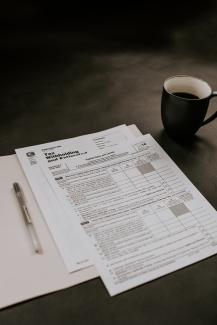
The Consolidated Appropriations Act, 2021 brings Personal Income Tax Changes and Extensions
Throughout various parts of the Consolidated Appropriations Act of 2021 signed into law on December 27, 2020, changes were made to the Internal Revenue Code to the rules governing personal income taxes.
- Certain charitable contributions deductible by nonitemizers. When the CARES Act was introduced in March 2020, it included a $300 maximum above-the-line deduction for cash contributions for individuals who do not itemize deductions on their Federal income tax return. The bill extends this benefit to 2021 and increases (for 2021 only) the maximum amount to $600 for married couples filing jointly.
- The other CARES Act charitable benefit of allowing the deduction of up to 100% of an individual’s AGI for all-cash contributions to a qualified charity was also extended through the end of 2021.
- ‘Permanent’ reduction in the AGI hurdle for medical expense deductions. In recent years, the ‘hurdle rate’ for medical expenses has oscillated between 7.5% of AGI and 10% of AGI. Now, the 7.5% rate is restored for all taxpayers, for all future years (or at least until Congress changes its mind again and passes another law).
- Carryforward relief for Flexible Spending Account Funds that remain unused at the end of the year. In general, any amounts remaining unused in an individual’s Dependent Care FSA or a Health FSA are forfeited. In an effort to avoid substantial employee forfeitures given the unusual circumstances of 2020, Congress authorized significant relief for unused FSA funds. More specifically, the Act permits employers to let employees roll forward (carryover) any unused 2020 balances to 2021. It further allows any remaining balances at the end of 2021 to be rolled forward into 2022. However, the language of the Act does not appear to require employers to adopt such a policy. Accordingly, employees should reach out to their HR departments, or other responsible persons, to see whether the plan will/has adopted such relief because it will still be up to the employer to choose to do so (or not).
- Educator Expenses include COVID-19-related supplies. The Act requires the IRS to produce guidance by February 28, 2021, related to the inclusion of certain COVID-19 prevention-related expenses in the definition of Educator Expenses provided they were incurred on, or after, March 13, 2020. In other words, educators buying their own PPE or other COVID-19 supplies for their classrooms will be able to claim a deduction for those expenses as part of their overall above-the-line $250 Educator Expenses deduction.
- Lifetime Learning Credit with higher income phaseout to replace Tuition and Related Expense deduction. The Act makes 2020 the last year that the Tuition and Related Expenses above-the-line deduction can be claimed. But all is not lost—because replacing the Tuition and Related Expenses deduction will be a Lifetime Learning Credit with a higher phaseout range. Beginning in 2021, the Lifetime Learning Credit phaseout range will be aligned with the American Opportunity Tax Credit phaseout range. Accordingly, both credits will phase out from $80,000-$90,000 for single filers, and from $160,000-$180,000 for joint filers.
